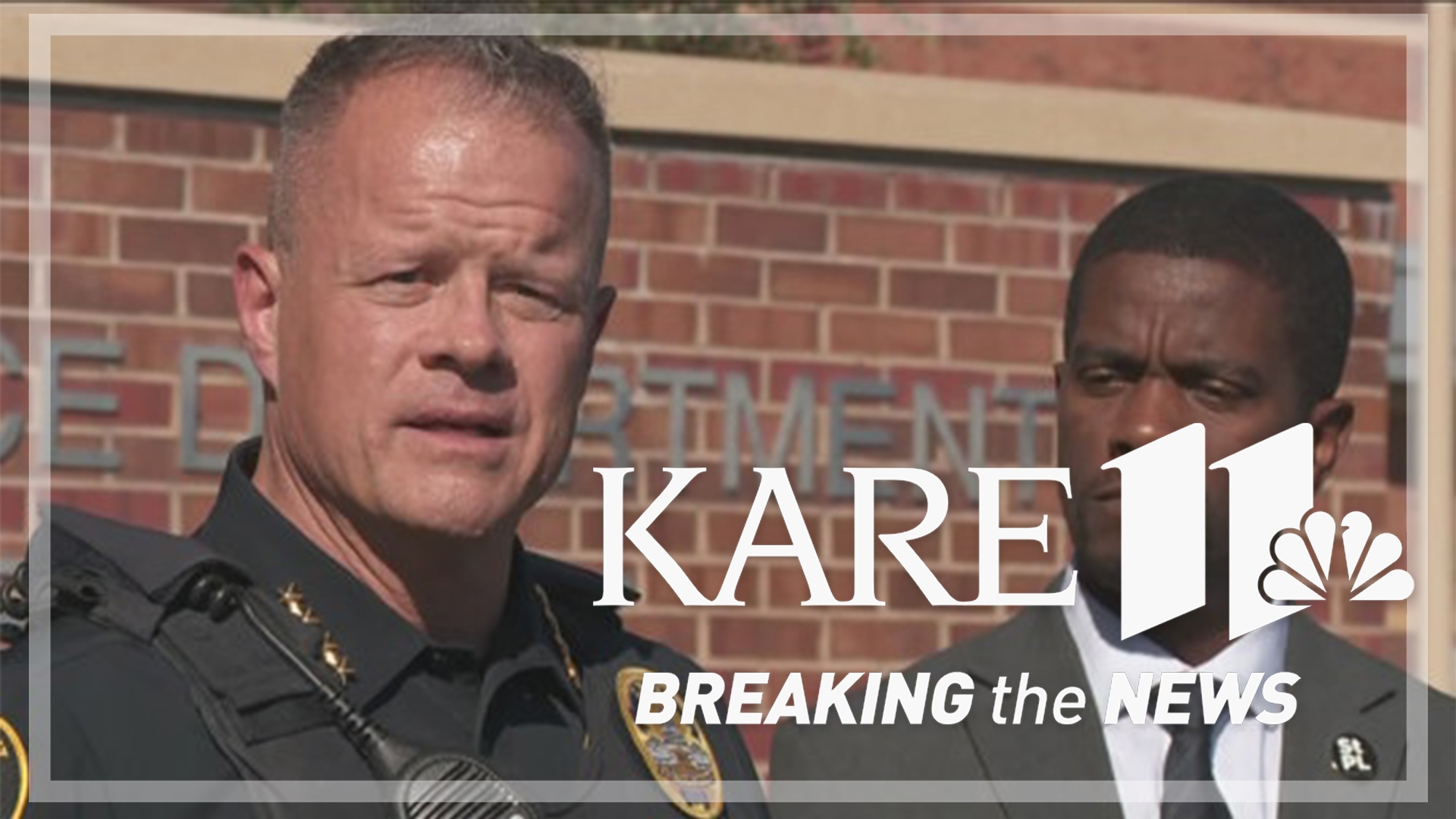MINNEAPOLIS — As the Lowertown neighborhood in Saint Paul mourns the brutal murder of a beloved artist, the top law enforcement official in the city is using the case to highlight the crisis of gun violence both locally and nationally.
Saint Paul Police Chief Axel Henry made the pointed comments at a press conference on Thursday afternoon, after announcing that two of his officers shot and killed the person they suspect of murdering Carrie Kwok a night earlier.
"This murder that took place in our city, which led us to be talking about this officer-involved shooting," Henry said, "has all kinds of hallmarks and flags that I think are going to come out in the coming days, that we as a state and as a country need to start taking more seriously. We have rules and regulations both on the state and federal level, that talk about what we need to do about who can have guns."
On Friday afternoon, the BCA identified the man killed by police as 29-year-old Seantrell Murdock.
Police said he had a gun when officers confronted him in Belle Plaine, although it's not clear whether it was the same gun used in the Lowertown shooting. Court records show that Murdock had a lengthy criminal history dating back to 2013, including a felony burglary conviction that bans him for life from possessing firearms.
Also, court documents from Scott County shed more light into Murdock's hospitalization last year during a mental health crisis, which led to a petition seeking to have him civilly committed as a "person who poses a risk of harm." According to those documents, Murdock's mother brought him to Fairview Riverdale Hospital's emergency room in January 2023 reporting a diagnosis of Bipolar disorder and use of alcohol, marijuana and opioids.
"Respondent was 'tripping' on LSD and having some form of psychotic incident upon admission," according to the court records. "Respondent became physically and verbally assaultive to staff requiring physical restraints and emergency medications."
However, after Murdock's behavior improved and he showed a willingness to take medication, the court issued a stay on his civil commitment, meaning he could be discharged from the hospital as long as he complied with a treatment plan.
Since then, a courts spokesperson confirmed that no petitions had been filed against Murdock under the state's new red flag law, which allows the courts to remove firearms from a person deemed a threat to themselves or others. But, given his felony conviction, any weapon Murdock obtained would have been illegal anyway.
"I think as this case plays out, we're going to start to see that this is like many other cases," Chief Henry said. "I think we as a community have to come together and say, when we hear these warnings, when we see these advanced notices... we as a community have to take that seriously. We have to listen and we have to act."
Police have not said how Murdock obtained a weapon, given his criminal history and felony restriction on having a firearm.
"That's where we get into problems across the country," said Megan Walsh, the director of the Gun Violence Prevention Clinic at the University of Minnesota Law School. "Firearms are too easy to access, too easy to purchase."
Walsh described Minnesota's gun laws as "pretty good" and said she was pleased to see the state legislature bolster them over the past few years, including the passage of a red flag or Extreme Risk Protection Order law.
However, she said there is still room for improvement, as evidenced by the Lowertown shooting this week.
"My heart just breaks for this community. It's just heartbreaking. This is a situation where it could have been prevented. He was known to have difficulties. He was known to be in a period of crisis," Walsh said. "One of the things I was thinking about while reading about the Lowertown case is that, there are a couple of different elements of when you want to prevent someone from accessing a firearm. Certainly, when a court is trying to make a decision about whether someone should be civilly committed, they should be asking what weapons are accessible to you, identifying where they are, and creating a very specific plan to ensure that individual cannot access them."
Meanwhile, in Belle Plaine, Seantrell Murdock's brother said his family is just as shocked about the situation as everyone else.
"It didn't really make sense. Because I knew what he was doing -- pursuing his school, doing his thing, working. I'm like, what the heck is going on?" Rahi Murdock said. "I'm still just kind of processing everything myself. I don't really know what to say."

